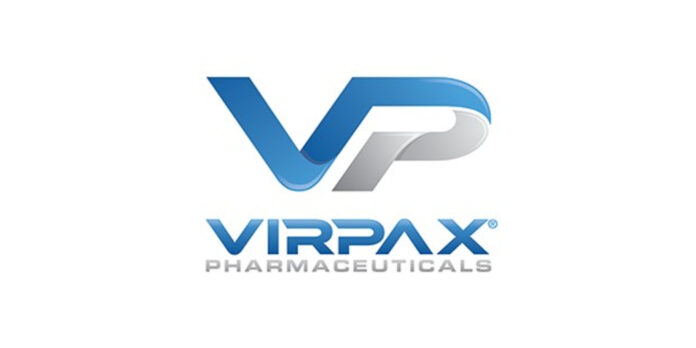BERWYN, Pa.– Virpax® Pharmaceuticals, Inc. (“Virpax” or the “Company”) (NASDAQ: VRPX), a company specializing in developing non-addictive product candidates for pain management, CNS disorders and anti-viral indications, reported preclinical pharmacokinetics (PK) results for VRP324 (MET-CBD), a nose-to-brain delivery platform for CBD for the management of seizures in children and adults. In this preclinical PK study, VRP324 was able to deliver cannabidiol (CBD) to the brain after nasal administration in a rodent model. Nasal delivery of VRP324 provided high concentrations of CBD in the brain and the preclinical studies confirm that there were higher levels of CBD in the brain versus the plasma.
Virpax believes that VRP324 may achieve higher efficiency via the nasal route compared to the oral CBD product on the market since peripheral exposure via plasma may be reduced by the nose-to-brain delivery. Evidence suggests that compared to the commercialized oral-dosed CBD, the nose-to-brain CBD formulation may have negligible liver first-pass metabolism, thereby avoiding drug to drug interactions and potentially producing fewer side effects. By avoiding the first pass effect, intranasal VRP324 may also eliminate enzymatic degradation.
“The results from this preclinical PK study met our expectations. We are encouraged that our molecular envelope technology (MET) may offer a more effective and efficient delivery method than the approved oral formulation, especially for children who suffer from seizure disorders. As previously stated, we plan to immediately proceed with preparing a pre-IND application briefing document for the U.S. Food and Drug Administration’s review,” commented Anthony P. Mack, Chairman and Chief Executive Officer of Virpax.
VRP324 uses a preassembled device and cartridge to propel the MET-CBD powder formulation into the nose via the olfactory nerve/bulb. This product candidate has been formulated to potentially treat seizures associated with tuberous sclerosis complex (TSC), Lennox-Gastaut syndrome and Dravet syndrome in patients one year of age and older. Lennox-Gastaut syndrome and Dravet syndrome are rare central nervous system diseases considered serious epileptic encephalopathies that cause different types of epileptic seizures, and cognitive and behavioral changes. These syndromes have historically been resistant to treatment.
“We are pleased to have generated successful preclinical PK data in support of the exclusive license for VRP324, previously granted to Virpax by Nanomerics Ltd. and we look forward to working with Virpax to bring this much needed treatment to epilepsy patients,” said Professor Ijeoma F. Uchegbu, Chief Scientific Officer of Nanomerics Ltd.


